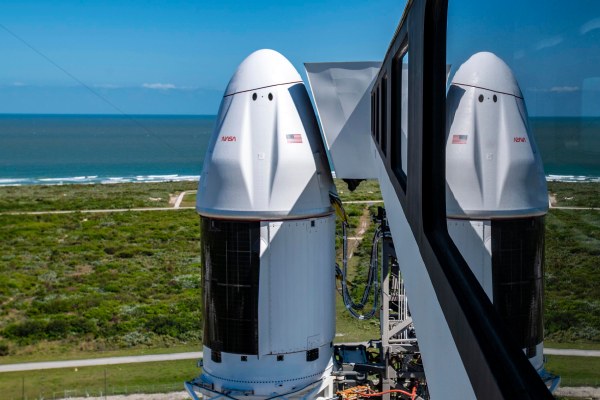ARTICLE AD

SpaceX is in the final stages of certifying a second pad for astronaut launches, which should ease launch site congestion and help the company scale the number of humans it sends to space.
SpaceX has performed 13 crewed missions, and all of them launched from Launch Complex 39A at NASA’s Kennedy Space Center. It’s the only pad currently certified for human spaceflight. But the company has long intended to upgrade a second pad — SLC-40 at the neighboring Cape Canaveral Space Force Station — to expand its crew launch capacity.
The company is nearly there. Last fall, SpaceX workers installed a crew access arm to the launch tower, a key piece of infrastructure that allows astronauts access to the crew Dragon spacecraft. The company also installed a new emergency egress system at the pad to allow the crew a quick escape in the case of an anomaly.
The system, which is essentially a long orange slide that stretches from the crew tower to the ground, will help SpaceX “scale to bigger towers and spaceships (think 100 people on Starship),” VP of Launch Kiko Dontchev said in a social media post.
As a next step, SpaceX is going to launch the CRS-30 cargo resupply mission. That mission, which is part of a series of now-routine cargo missions the company performs for NASA, is due to lift-off tomorrow at 4:55 PM EDT. As the name of the mission suggests, it is the company’s 30th mission delivering essential materials to astronauts aboard the ISS since 2012.
In a media teleconference in February, SpaceX’s VP of build and flight reliability, Bill Gerstenmaier, said the cargo flight is an incremental step to astronaut launches. Both cargo and crew missions use variants of the company’s Dragon spacecraft.
“We would like to do a cargo flight first if we can. We think CRS-30 is probably the right time to do that,” he said. “The work’s pretty much completed at the pad. [We’ve] got some stuff to do next week, but we’ll be in good shape for CRS-30.”

 9 months ago
61
9 months ago
61 

